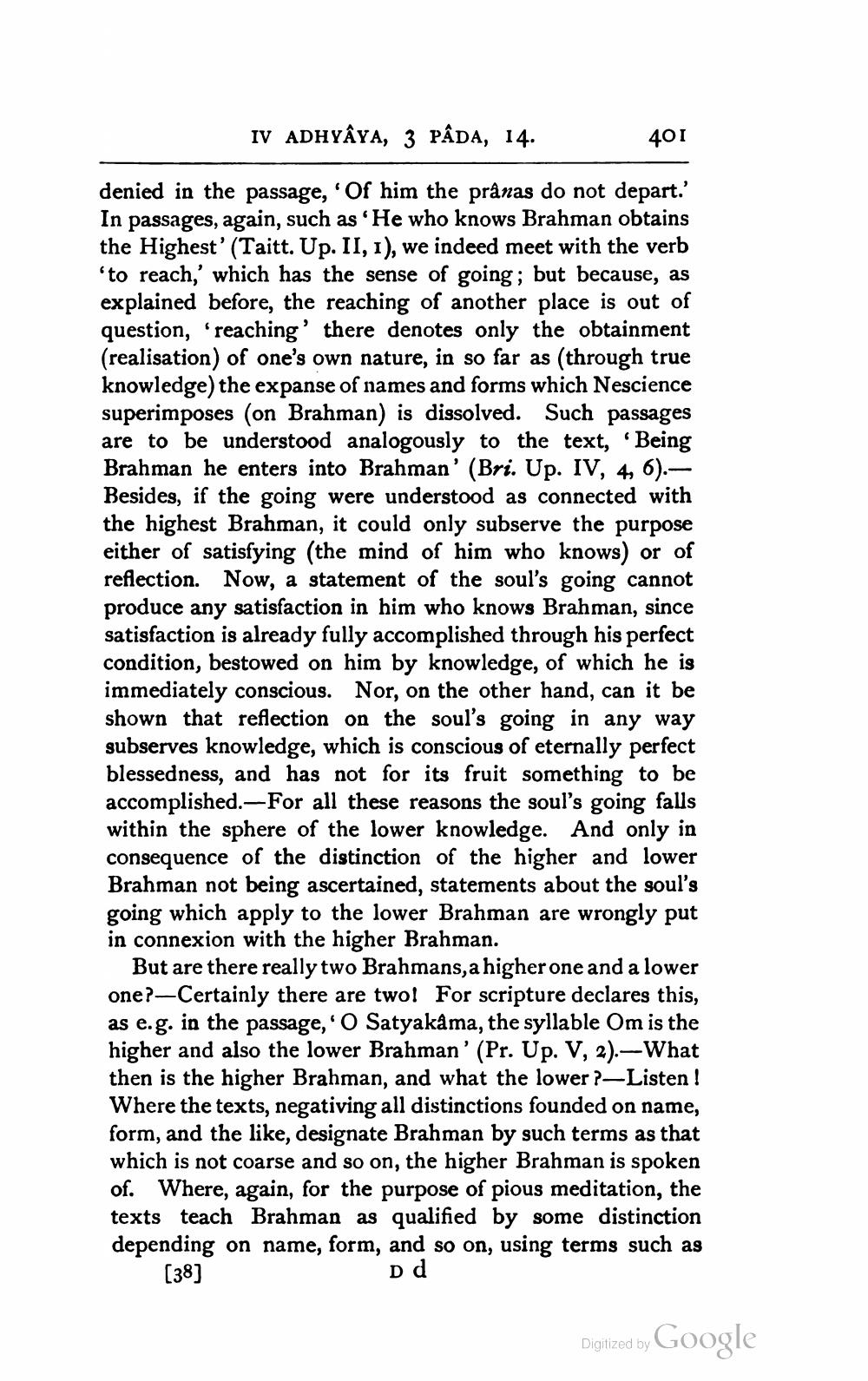________________
IV ADHYAYA, 3 PÂDA, 14.
denied in the passage, 'Of him the prânas do not depart.' In passages, again, such as 'He who knows Brahman obtains the Highest' (Taitt. Up. II, 1), we indeed meet with the verb 'to reach,' which has the sense of going; but because, as explained before, the reaching of another place is out of question, 'reaching' there denotes only the obtainment (realisation) of one's own nature, in so far as (through true knowledge) the expanse of names and forms which Nescience superimposes (on Brahman) is dissolved. Such passages are to be understood analogously to the text, 'Being Brahman he enters into Brahman' (Bri. Up. IV, 4, 6).— Besides, if the going were understood as connected with the highest Brahman, it could only subserve the purpose either of satisfying (the mind of him who knows) or of reflection. Now, a statement of the soul's going cannot produce any satisfaction in him who knows Brahman, since satisfaction is already fully accomplished through his perfect condition, bestowed on him by knowledge, of which he is immediately conscious. Nor, on the other hand, can it be shown that reflection on the soul's going in any way subserves knowledge, which is conscious of eternally perfect blessedness, and has not for its fruit something to be accomplished. For all these reasons the soul's going falls within the sphere of the lower knowledge. And only in consequence of the distinction of the higher and lower Brahman not being ascertained, statements about the soul's going which apply to the lower Brahman are wrongly put in connexion with the higher Brahman.
But are there really two Brahmans, a higher one and a lower one? Certainly there are two! For scripture declares this, as e.g. in the passage, ' O Satyakama, the syllable Om is the higher and also the lower Brahman' (Pr. Up. V, 2).—What then is the higher Brahman, and what the lower ?-Listen! Where the texts, negativing all distinctions founded on name, form, and the like, designate Brahman by such terms as that which is not coarse and so on, the higher Brahman is spoken of. Where, again, for the purpose of pious meditation, the texts teach Brahman as qualified by some distinction depending on name, form, and so on, using terms such as D d
[38]
401
Digitized by
Google




